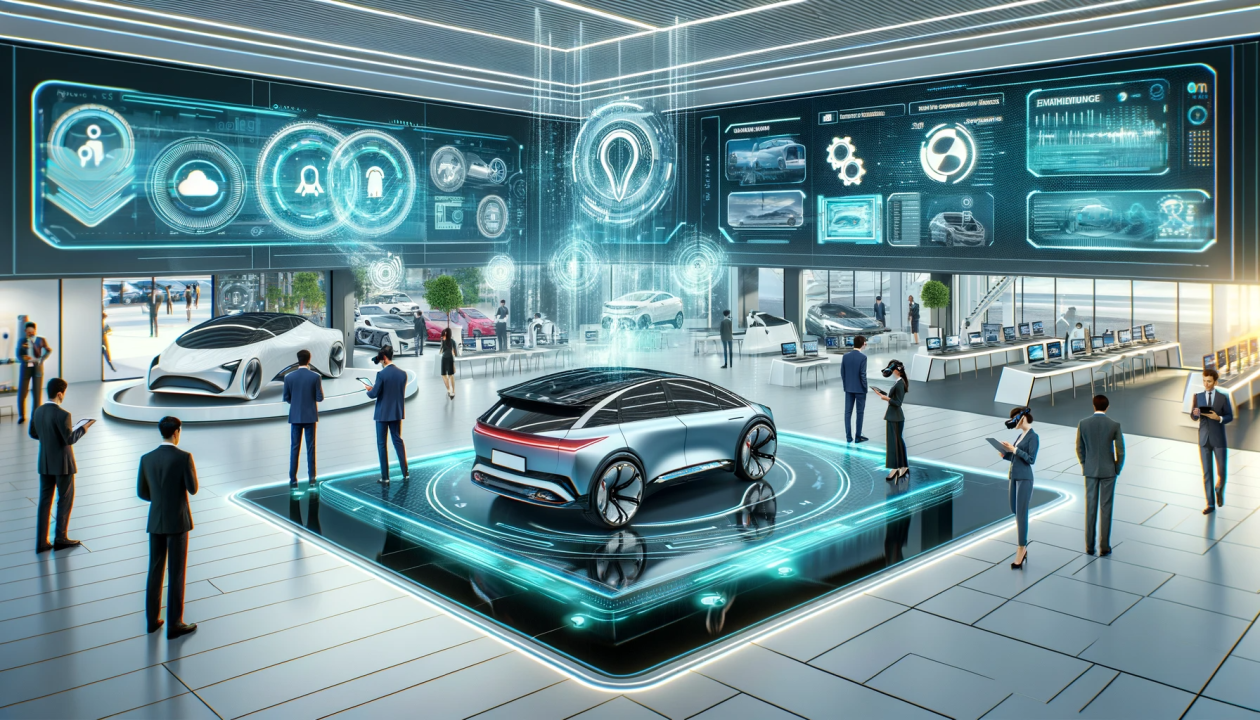
The automotive industry, a dynamic and ever-evolving sector, is experiencing transformative shifts. Driven by supply chain disruptions, the exponential growth of electric vehicles (EVs), economic uncertainties, and evolving consumer behaviors, this industry stands at a pivotal crossroads. Embracing technology is not just advantageous but essential for dealerships aiming to harness sales growth and stay competitive in this rapidly changing landscape.
The journey of car shopping has undergone a significant transformation over the last decade, transitioning from traditional, in-person dealership visits to a more digitized experience. Initially, this digital shift was marked by dealerships implementing basic Customer Relationship Management (CRM) tools and establishing online presences through websites to showcase their vehicle inventory. However, the bulk of sales transactions continued to unfold within the physical confines of dealerships.
“According to J.D. Power, 93% of buyers visit only one dealership through the car buying process today compared to visiting over 3 dealerships on average in the past.”
This status quo began to change as automotive portals started aggregating critical information such as pricing data, customer reviews, and detailed vehicle specifications. This evolution led to a more informed consumer base that would spend considerable time researching online before setting foot on a dealership lot. Despite this increased digital engagement, the actual act of purchasing a vehicle remained predominantly an in-person experience, with online sales constituting only a minor fraction of the overall sales volume during this phase.
Recent challenges, particularly the unprecedented supply shortages in 2021 and 2022, have forcefully accelerated the shift towards digital retail. Dealerships had to adapt with virtual showrooms, video consultations and other technologies to manage constrained inventory.
However, this push has also been driven by the evolving preferences of consumers who increasingly seek integrated, seamless digital experiences. This shift is requiring dealerships to rapidly adopt omni-channel retail strategies that break channel silos to connect online and offline customer engagement. Though the majority of purchases still occur in-store presently, this trend is irrevocably changing established norms.
“As per a 2023 Capgemini study, over 75% of prospective buyers now desire an integrated online-offline journey. Still, only ~10% of sales happen online presently”
Looking ahead to 2024 and beyond, industry analysts are forecasting a sales resurgence as acute supply chain disruptions ease over the next 12-18 months. In this context, adopting future-forward technologies will be critical for dealerships to capture this imminent rebound and meet the pent-up consumer demand.
A key trend will be leveraging shopper data and predictive AI to offer highly personalized customer experiences. Forward-thinking dealerships will tailor their marketing offers, product recommendations, conversational messaging and even vehicle configurations to the individual context and declared preferences of each customer.
“According to a recent study by McKinsey, 71% of consumers expect personalized experiences from brands they interact with.”
This personalization also promises to revolutionize the sales process itself. AI-assisted lead management will empower sales teams with predictive recommendations on the highest value product and financing options aligned to customer needs.
Widespread adoption of augmented reality (AR), virtual reality (VR), and 3D visualization technologies will transform traditional showrooms. Customers will be able to digitally explore vehicle features in intricate detail and personalize their desired configurations all from their location of choice. AR will even enable lifelike virtual test drives before purchase. Dealerships that implement self-serve customization tools and virtual reality showrooms will benefit from enhanced customer engagement, expanded reach, and the ability to manage inventory and assets more efficiently.
The use of sophisticated automotive analytics solutions will become integral for day-to-day and strategic decision making. Predictive sales forecasts, demand modeling, pricing optimization and consumer targeting insights will provide dealerships valuable competitive intelligence.
Analytics dashboards will be able to pinpoint the most profitable geographic regions, vehicle segments, feature bundles, customer archetypes and high-ROI marketing strategies. Implementing analytics best practices will positively influence lead conversion, inventory turnover, ancillary attachment rates and profitability growth over industry peers.
Another trend will involve leveraging emerging social commerce capabilities. Innovative dealerships will collaborate with influencers and deploy organic social media content to inspire buyers and drive awareness. Integrated platforms can help convert these digital interactions into sales by nurturing social audiences into loyal customers.
TikTok shoppable video ads, Instagram reels promotions, interactive YouTube videos and similar formats will open new avenues to attract consumers. Tailoring social content and engagement by audience interests using analytics will maximize response.
As online car buying explodes, dealerships need rock-solid, all-in-one ecommerce platforms. These platforms must be transparent, accurate, and intuitive, with visual configuration tools, seamless financing calculators, and optimized buying journeys. Local inventory lookups, advanced filters, and AR exploration are non-negotiables.
Dealerships who invest in flexible, adaptable ecommerce systems will be best positioned to capture surging digital revenue as online car buying takes off in the coming years. Those who embrace digital transformation across their entire business – from operations and marketing to sales and commerce – will have a strategic edge in this dynamic era.
